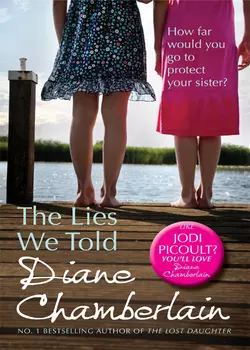The Lies We Told

Diane Chamberlain
Тип: электронная книга
Жанр: Современная зарубежная литература
Язык: на английском языке
Стоимость: 305.03 ₽
Статус: В продаже
Издательство: HarperCollins
Дата публикации: 16.04.2024
Отзывы: Пока нет Добавить отзыв
О книге: Maya and Rebecca Ward are both accomplished physicians, but that′s where the sisters′ similarities end. As teens, they witnessed their parents′ murder, but it was Rebecca who saved Maya from becoming another victim. The tragedy left Maya cautious and timid, settling for a sedate medical practice with her husband, Adam, while Rebecca became the risk taker. After a devastating hurricane, Rebecca and Adam urge Maya to join the relief effort. To please Adam, Maya agrees. She loses herself in the care and transport of victims, but when her helicopter crashes into raging floodwaters, there appear to be no survivors.Forced to accept Maya′s gone, Rebecca and Adam turn to one another—first for comfort, then in passion—unaware that miles from civilization, Maya is hurt and trapped with strangers she′s not sure she can trust. Away from the sister who has always been there to save her, Maya must find the courage to save herself—unaware that the life she knew has changed forever.Praise for Diane Chamberlain ‘Fans of Jodi Picoult will delight in this finely tuned family drama, with beautifully drawn characters and a string of twists that will keep you guessing right up to the end.′ – Stylist‘A marvellously gifted author. Every book she writes is a gem’ – Literary Times’Essential reading for Jodi Picoult fans’ Daily Mail’So full of unexpected twists you′ll find yourself wanting to finish it in one sitting. Fans of Jodi Picoult′s style will love how Diane Chamberlain writes.’ – Candis